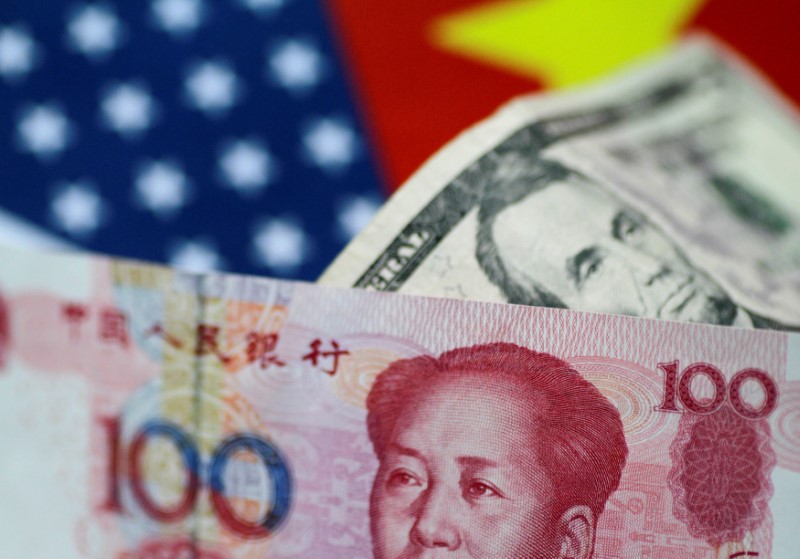Investing.com– Most Asian currencies fell on Thursday, while the dollar held recent gains as the minutes of the Federal Reserve’s June meeting showed that policymakers supported more rate hikes this year.
The showed that almost all members of the central bank supported more rate hikes in the coming months, citing stubborn inflation and an overheated labor market.
The minutes drummed up , while also pushing investors into the dollar and out of risk-heavy Asian markets.
The and rose slightly in Asian trade after rising 0.5% overnight, while most Asian currencies weakened further. Focus was also on key data, due on Friday, for more cues on the Fed.
Chinese yuan nears 8-mth low amid trade war, slowdown fears
The was marginally weaker to the dollar on Thursday after logging steep losses in the prior session. The currency was trading just shy of an eight-month low, having taken little support from several strong daily midpoint fixings by the People’s Bank of China.
Data over the past week showed that deteriorated for a third straight month in June, indicating that a post-COVID rebound in the country had largely run out of steam.
More Chinese economic indicators are also on tap in the coming days, with due next week.
In addition to weak economic conditions, the yuan was also hit by concerns over worsening trade relations between the U.S. and China. Beijing blocked the export of key chipmaking materials to the U.S., raising the threat of U.S. retaliation, which could disrupt global trade.
Other Asian currencies also retreated on Thursday, with the and down 0.2% each.
The fell 0.1% after a 0.5% tumble on Wednesday, taking little support from stronger-than-expected trade data for May. But the country’s was still close to a nine-month low, amid weakening exports to China.
Japanese yen resilient amid intervention talk
The firmed 0.3% on Thursday, appearing somewhat more resilient than its Asian peers amid continued speculation over government intervention in currency markets.
Concerns over rising U.S. interest rates, coupled with a dovish outlook for the Bank of Japan, battered the yen in recent weeks, pushing it close to levels that had spurred government intervention in late-2022.
Several top Japanese ministers also issued verbal warnings on betting against the yen, which in turn helped inspire some strength in the Japanese currency.
Read the full article here





